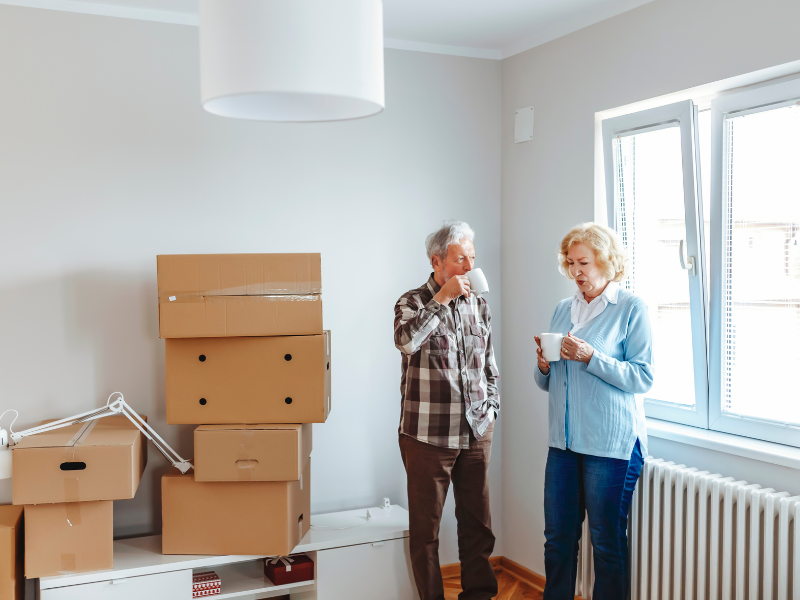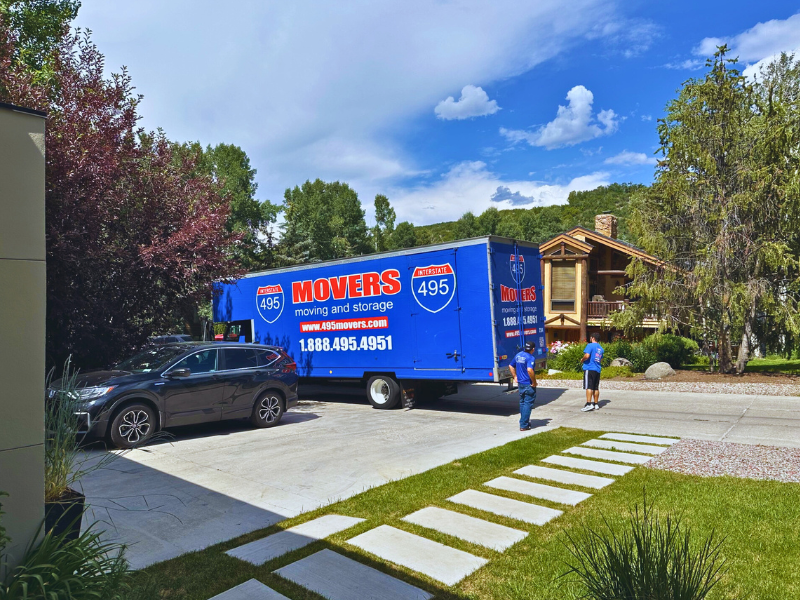
As the experts, moving companies have trained and experienced professionals to ensure your belongings are packed and transported properly to ensure a safe arrival at their next destination. That being said, accidents can happen. This is where moving insurance steps in to help cover any potential damages during your move. There are several different options ranging from your basic coverage to third-party alternatives. Let’s break down the details to help you determine what coverage is right for you.
Types of Moving Insurance
There are two main types of coverage that moving companies are required to offer—Released Value Protection (Basic) and Full-Value Protection:
- Released Value Protection (RVP):The good news? This coverage is offered to you at no cost and is typically included as a part of your move! RVP goes by weight covering $0.60 per pound if an item became damaged during a move. That’s the downside–it doesn’t cover the full value of the item. For example, if your TV weighs 50 pounds and it gets damaged, you would only be reimbursed for roughly $30. Today, that money might get you a nice TV remote, but it’s no where near the cost for the TV itself. Moving companies recognize this and offer additional coverage options to help ensure their clients have better protection from potential damages.
- Pros:
- No Additional Cost: This is offered at no additional cost in your moving expenses.
- Partial Coverage: This offers partial coverage at $0.60 per pound of any damage.
- Cons:
- Coverage Limitation: While you do get some kind of protection, it's very limited. you're not subjected to repair or replacement of any damaged items and the cost falls on you alone.
- Minimal Compensation: At $0.60 per pound, this is next to nothing especially considering the worth of high-value items.
- Pros:
- Full Value Protection (FVP): Like the name suggests, this opinion covers the full value to replace or repair any damaged item (at current market value.) In this instance, it falls on the moving company to fulfill this responsibility. However, while this option provides much more value, it does come with a cost. The different coverage plans vary in price typically based on the amount of coverage and size of the deductible you choose for your move. Don’t hesitate to reach out to your moving company to discuss these options to help determine what path you want to take.
- Pros:
- Full Coverage: This covers the full replacement or cost of repair (at current market value) for any damaged items. This is especially beneficial for any valuable or fragile items.
- Cons:
- Cost & Deductibles: This option does come at a higher cost and varies depending on your coverage amount and deductible.
- Pros:
- Additional Coverage Options: Before deciding between the coverage options provided by your moving company, explore your options! Reach out to your home insurance provider to see if your coverage extends to moves as well. You can also reach out to an independent insurer for a more tailored plan or for specific coverage of high-value items.
What Coverage is Right for You?
Most movers will recommend full value protection because it offers more comprehensive coverage. This is especially true if you are packing yourself or have valuable or fragile items. Even if the movers handle all items with extreme care, the wrong bump on the road could damage poorly packed belongings. That’s why it’s always recommended to opt for full value protection. However, for those who have a limited budget or potential damage to items they don’t mind risking, move forward with the RVP that’s offered.
Bonus Moving Tip: Rather than packing items yourself, let the experts handle it! You’re better off trusting a team of professionals that pack items for a living to ensure your belongings arrive in the best possible condition.
Choosing the right coverage is dependent upon your circumstance. If you don’t want to risk any potential damage to your belongings when moving, opt for the highest level of coverage provided (especially for high-value items.) Nonetheless, a reliable moving company will always deliver your belongings in the same condition they found them. Additional coverage is an added layer of protection to ensure that if an accident were to happen, you’ll be reimbursed!
Subscribe to 495 Movers's Blog






Comments